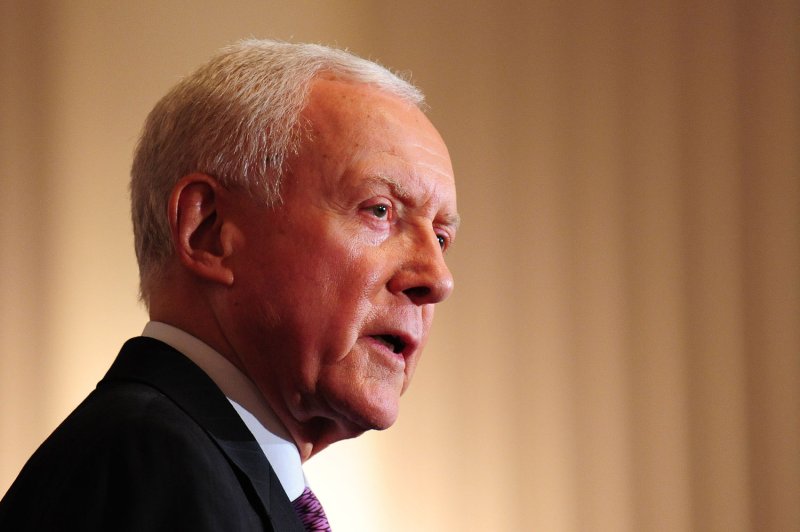Sen. Orrin Hatch (R-UT) speaks at a press conference on increasing the debt ceiling and balancing the budget in Washington, D.C. on June 22, 2011. UPI/Kevin Dietsch |
License Photo
WASHINGTON, Dec. 14 (UPI) -- The U.S. Senate rejected two versions of a balanced budget amendment Wednesday, fulfilling a deal with conservatives to bring up the votes.
A main piece of the deal, a bipartisan congressional supercommittee, last month failed to come up with long-term budget reductions, triggering a set of automatic budget cuts next year. The Los Angeles Times said many in Congress are working to prevent the automatic cuts from occurring.
The Times said the payment for raising the debt limit and avoiding default by the U.S. government earlier this year appear to be an agreement to cut $1.2 trillion over 10 years. The report said that figure was far less than Republicans had hoped.
The balanced budget amendment did not pass the Republican-led House when it came up for a vote last month.
The amendment, sponsored by U.S. Sen. Orrin Hatch, R-Utah and 47 others, would require a two-thirds vote in Congress to spend more than the government takes in or raise taxes, the Times said.
The White House opposed to amendments, saying in a statement the bill proposed by Hatch "would set a severe and unrealistic spending cap that would undercut the federal government's ability to meet its core commitments to seniors, middle class families and the most vulnerable, while reducing our ability to invest in our future. This cap could result in severe cuts to programs like Medicare and Social Security that are growing due to the retirement of the baby boomers, putting at risk the retirement security of millions of Americans, and it could result in significant cuts to education, research and development, and other programs critical to growing our economy and winning the future.
"[The bill] also would impose serious risks for our economy."















